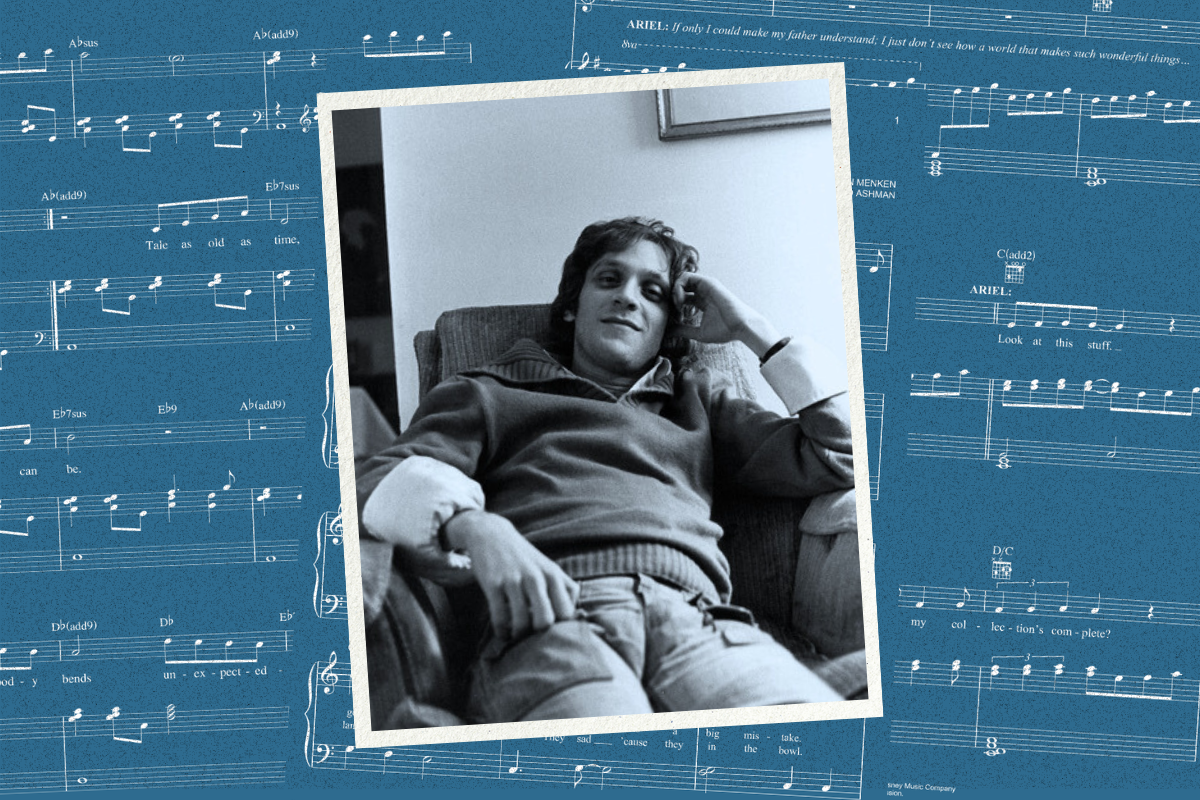With the release of the live-action adaption of Disney’s animated 1989 film, “The Little Mermaid,” it’s time to step back and give some roses to one of the people responsible for the original film’s beautiful soundtrack: Howard Ashman.
Born May 17, 1950, in Baltimore, Maryland to a Jewish family, Howard Ashman was the son of Shirley Thelma (née Glass) and Raymond Albert Ashman. As a child growing up, Ashman was drawn early on to music and the theater, joining the Children’s Theatre Association at the age of 6 and performing in rehearsed plays at the theater from then until high school.
After graduating with a BA in Theater from Goddard College and a Master’s in Fine Arts from Indiana University, Ashman moved to New York City to begin his life in the professional world of theater and composition.
In the late 1970s he would become the artistic director of the WPA Theater in New York and meet future artistic collaborator and friend Alan Menken at the BMI Workshop. Together, they worked on a series of productions, including the 1979 musical “Kurt Vonnegut’s God Bless You, Mr. Rosewater” and off-Broadway horror-comedy musical “Little Shop of Horrors,” which would letter be adapted into the 1986 hit musical movie of the same name.
While some of Ashman’s projects were hits and misses, such as the musical “Smile” (with music composed by Marvin Hamlisch) that had received mixed reviews from a broader audience (though apparently a hit with the high school and college theater crowds), Ashman’s talent in composing hit lyrics and developing character-driven stories was undeniable.
In 1986, when Ashman first collaborated with Disney, he was brought in to co-write lyrics for the song “Once Upon a Time in New York City” in Walt Disney Animation Studios’ “Oliver and Company.”
And it was a good thing he came when he did.
In the late 1980s, Disney’s animation department was floundering (excuse the pun, Flounder). With recent animation projects like 1985’s “The Black Cauldron” doing poorly at the box office, Disney needed some star power that could revive its cartoon innovating legacy.
With Howard on the team of “The Little Mermaid,” there was no better person to do it.
His contributions in the iconic aquatic film were endless, from deciding that Sebastian would be Jamaican (which allowed for inclusion of calypso music in the film’s soundtrack) to handpicking the lead voice for Ariel, Jodi Benson (whom he’d previously collaborated with on “Smile”) to personally coaching her in her transition from stage actress to voice actress, to developing artistically groundbreaking songs like “Part of Your World.”
Benson herself testified that she would not have been able to give the performance she had were it not for Ashman’s guidance and support. “At one point, I told [Howard], ‘I can’t do this. I think they got the wrong girl … There’s a million people that can do this that know what the heck they’re doing,'” Benson said in an interview with D23. “He [was] like, … ‘You’ve got this. You can do this.'”
“There’d be no Ariel [without him]. It’s all Howard… People say, ‘Oh I love Ariel.’ I’m like, ‘Then you love Howard,’ because Ariel…is who Howard is,” Benson added.
In addition to making “The Little Mermaid” a critical success, Ashman would go on to work on two other films that would make up Disney’s Renaissance period: “Beauty and the Beast” (1991) and “Aladdin” (1992).
Sadly, though, Ashman would not live to see these last two films appear on the big screen.
In 1988, Ashman learned that he was HIV positive, during a time when little treatment was available, and the illness was highly stigmatized. On March 14, 1991, he passed away at the age of 40 from complications resulting from AIDS.
Though living less than a half a century in this world, Ashman’s legacy lives on today in the joy and beauty he brought to the world through his musical storytelling.
Now more than ever, it is important to highlight Ashman’s legacy, not only as an artist, but also as a gay Jewish man.
On the subject of prejudice surrounding HIV/AIDS, Ashman’s friend Menken had this say in light of his friend’s struggles with the disease: “I guess the most important thing to know is, if anybody has feelings that AIDS is God’s punishment, or something, then just look at the man, at what he created, and what it is in our lives, and think again about that.”
During a time when aggressively conservative forces threaten to shut down any kind of diverse representation for younger generations, the kind who cry out when a beautiful Black woman is cast as the star of her own fairy tale with a happy ending, it is our job to remind them that “The Little Mermaid” wouldn’t exist at all without the artistic vision of diverse and marginalized communities. And to those within the queer and Jewish communities, Ashman is a reminder that our art matters, that the people who make our beloved art matter, and that no one can take our voices away without a fight.
Not sea witches. And certainty not any bigots.
So, to Howard Ashman, musical extraordinaire, gone from the world too soon, all I have to say is: Thank you for being our guest.



